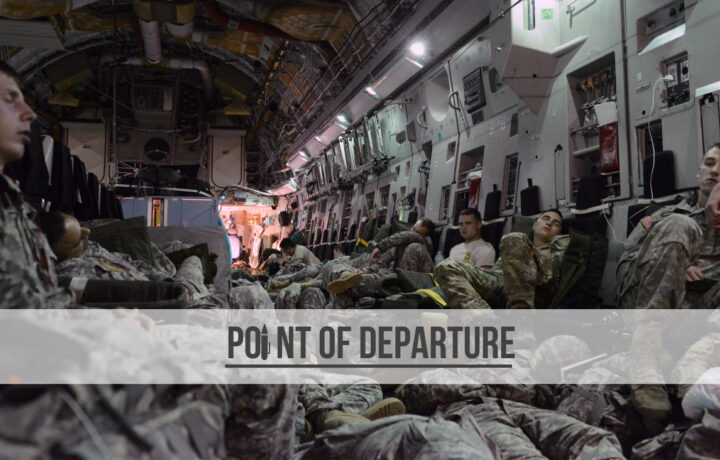“You can sleep when you’re dead.” – Warren Zevon
When the Government Accountability Office recently released its study on fatigue among service members, the findings were not all that surprising. Overall, their research revealed that many service members don’t get the seven hours of sleep recommended by the Department of Defense. As someone who rarely sleeps seven hours in a given night, I get that. Seven hours would be a nice, but those nights are few and far in between.
However, the study also found that for more than a decade, the majority of service members reported sleeping less than six hours a night. Additionally, what sleep they did get – regardless of quantity – was of poor quality. How does that translate operationally? “Fatigue caused by inadequate sleep can negatively affect a service member’s performance and has contributed to accidents resulting in deaths and hundreds of millions of dollars in damage to ships, vehicles, and aircraft.”
According to Johns Hopkins, the fatigue caused by chronic sleep deficiency reduces reaction time, slows mental recall, and drives mood shifts. But it also puts you at a greater risk for depression and anxiety, induces hormonal changes that lead to weight gain, and reduces your body’s immunity to disease. In other words, no good comes from a bad night of sleep.
Not at all surprising.
SLEEP IS NOT FOR THE WEAK
But there’s a difference between not sleeping well (or enough) and command-induced sleep deprivation. At some point, we’ve all worked with or for someone who wore sleep deprivation as a badge of honor. It was bad enough that they would subject themselves to sleep deprivation, but they also set an expectation that others would emulate their poor life choices.
“The Army hates sleep,” began a recent Military Review article on sleep and performance. “The Army fosters a culture where sleep is viewed as a privilege rather than a right. Army physical readiness training routines, staff duty, and training events all minimize the rest soldiers need.” And the Army is far from alone: the Washington Post reported recently that the Navy is plagued with the same issue. In fact, all the services deal with sleep deprivation on some level.
The question is why? Why do leaders – when the science is readily available to demonstrate the inherent danger – choose to deprive their personnel of adequate sleep? Why do they view sleep deprivation as a rite of passage? It’s not always mission demands, nor is it just an extension of the “hurry up and wait” syndrome. The cultural element of this runs deeper than manpower shortages and disorganized leadership. It comes down to ego.
Leaders who use sleep deprivation as some sort of appendage-measuring contest aren’t any different than those who gauge your value by how late you stay in the office, how much alcohol you can tolerate, or how fast you can run. It’s a form of unhealthy competition that, when it seeps into the organizational culture, becomes toxic in the workplace. And the leaders who push unhealthy forms of competition are just as toxic.
How TO HIT THE RACK LIKE A CHAMP
We can all agree that a good night of sleep is, well… good for you. Perhaps unsurprisingly, the benefits of proper, restful sleep are the polar opposite of those of sleep deprivation: restored energy, improved memory, better mood, and overall improved physical and mental health.
A good night of sleep doesn’t have to be elusive. The Centers for Disease Control and Prevention recommend five habits that will improve sleep health:
- Be consistent. Hit the rack at the same time every night and get up at the same time each morning. Even on the weekends.
- Cut the screentime. TVs, laptops, gaming consoles, and smart phones are not conducive to a good night’s sleep. Read a book. Listen to relaxing music.
- Set the environment. Make sure your bedroom is dark, quiet, and relaxing, and the temperature within a comfortable range for you.
- Fast a little. Avoid going to bed after a large meal or drinking alcohol or coffee. They will work against you.
- Get some exercise. A healthy dose of daytime physical activity will help you to fall asleep more easily at night.
Unfortunately, none of these will save you from a leader who thinks it’s a good idea to stay up for 24 hours straight before launching a major operation, or who insists that 80-hour weeks are the only way for you to succeed in your chosen profession. The same holds true for leaders who put so much stress on their people that they’re lucky to get more than a few hours of bad sleep on a given night. When those things happen, sleep just isn’t going to happen, or when it does it won’t be restful. And we’re right back where we started: punch drunk and stupid.




